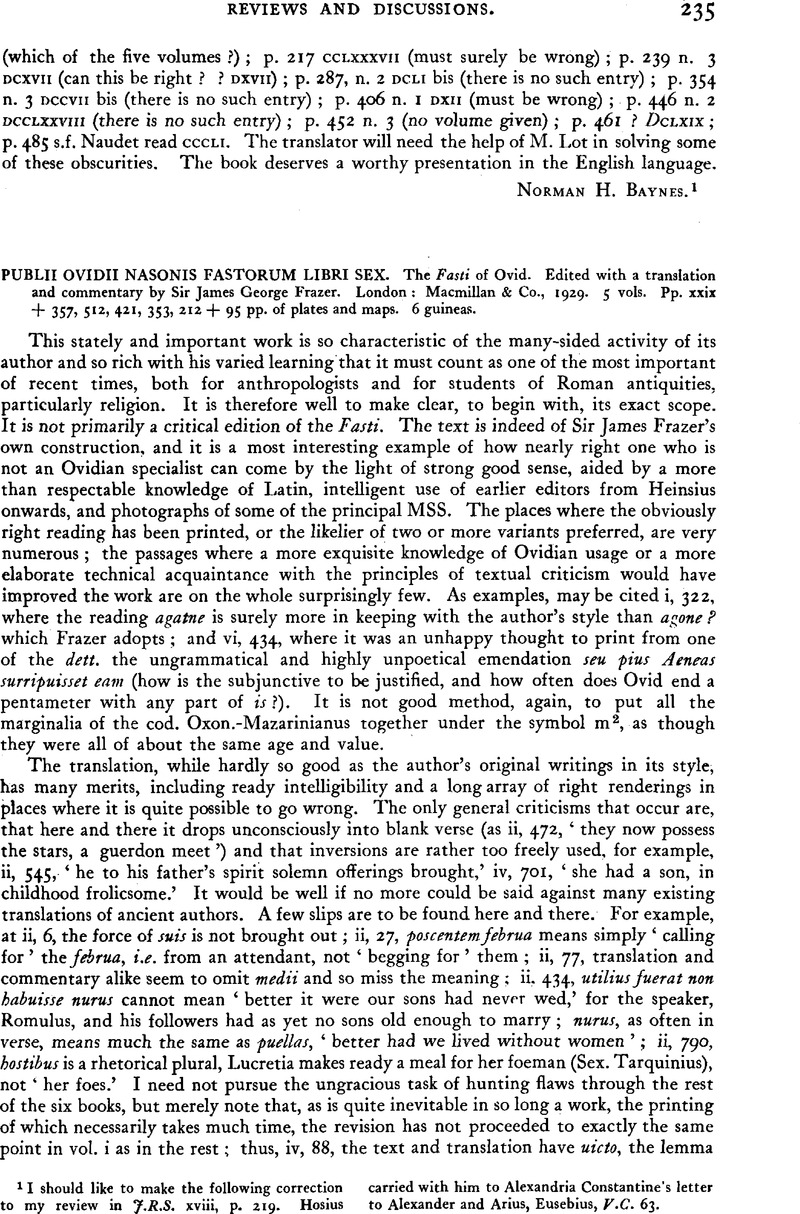No CrossRef data available.
Published online by Cambridge University Press: 24 September 2012

page 237 note 1 Rom. Quest, of Plutarch, p. 89 sqq. Since my views are several times cited and most courteously criticised in the work under discussion, I take the opportunity of remarking à propos of vol. iv, p. 53, that I have expressed myself loosely in op. cit. p. 204, note on quaest. Rom. 86. I say there that the second aition given by Plutarch for the unluckiness of marriage in May, the fact that the ceremony of the Argei comes then, is undoubtedly right. I should have said that either that or his third reason, the sacrifices to the dead in that month, was a sufficient explanation. In vol. iv, p. 84, Frazer convincingly refutes Mannhardt's theory of the Argei, which I had adopted; I have since abandoned it, and am now inclined to the second of the explanations given by Frazer, that the puppets represent a sacrifice to the river to induce it to spare the real men who cross it by that impious invention, the Pons Sublicius.
page 237 note 2 Quaest. Rom. 279 D; cf. Festus, p. 346, Lindsay.
page 238 note 1 Cf. Primitive Culture in Italy, p. 99 sq.
page 238 note 2 Macrob., Sat. i, 12Google Scholar, 6.
page 238 note 3 I give them in my Handbook of Greek Mythology, p. 331, note 53. See ibid. pp. 314–316.